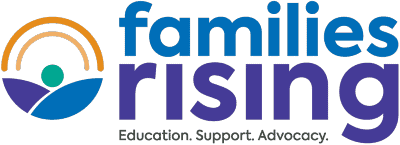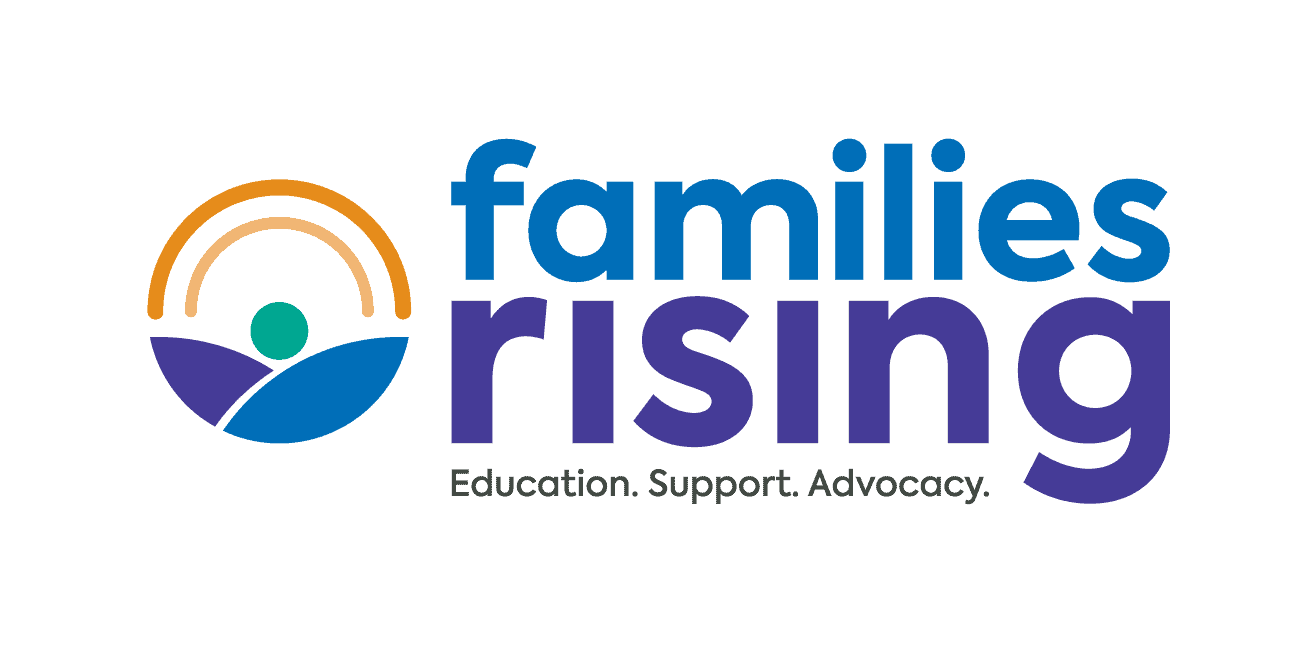by Vicky McKinney, from Spring 2004 Adoptalk
Suppose you had a brain tumor. Would you want an operation performed by someone who has only read about brain surgery or would you seek an experienced neurosurgeon? In our world of fetal alcohol spectrum disorder (FASD), treatment and care issues are similarly complicated, but some service providers have little experience with the disorder. In this article, I offer advice from FASD experts: parents! They can ably help others access positive interventions within the care systems [see inset] in which our family members find themselves.
Below is a sample of effective ways to work and live with FASD offered during 12 years of conversations, retreats, and meetings with the most tenacious, determined, and wonderful parents and professionals I have had the pleasure to call my friends.
Child Welfare
Because the challenge of raising FASD-affected children often falls to foster and adoptive parents, agencies that recruit and support them bear initial responsibility for helping parents to appropriately care for their children. At a minimum, child welfare agencies should:
Train intake workers to screen for FASD. Teach them to look beyond facial features and IQ scores. In fairness to caregivers, workers must be trained to recognize and ask about prenatal alcohol exposure. Any suspected prenatal exposure should be documented and shared with foster and adoptive parents.
Fully disclose information about children to foster and adoptive parents. As stated in the federal Social Security Act, agencies that care for and place foster children must supply updated educational and medical information to new parents when a foster child enters their home. Most states also maintain disclosure laws. If workers fail to provide detailed information about children, new parents should request it.
Encourage and help parents to find parent support groups. As I found early on with my daughter, it is very hard to parent a child with FASD when you feel no one else can understand your challenges. Being able to interact with other parents of FASD-affected children is affirming and very worthwhile.
| Systems of Care Encountered by Individuals with FASD |
|
Education
Once a child joins a new family, the education system looms large. Not surprisingly, the educational system gives rise to the largest number of complaints from families whose children are affected by FASD. We advise parents to:
Seek out early intervention services. Enroll your young children with FASD into early intervention programs, and fight for occupational, physical, and speech therapy services. When applied to very young children, these therapies can promote beneficial brain growth.
To find a program, consult A Parent’s Guide: Accessing Programs for Infants, Toddlers, and Preschoolers with Disabilities, published by the National Dissemination Center for Children with Disabilities. The guide is online at www.nichcy.org/pubs/parent/pa2.htm, as are links to state resources. Call 800-695-0285 to learn more.
Educate school personnel. Educate your child’s teacher about FASD, and all other teachers and staff (even bus drivers) who may come in contact with your child. Because of confidentiality laws, para-professionals who spend a lot of time with our children may know very little about your child’s disability. Invite key para-professionals to IEP meetings too. Educational success is much more likely when all school personnel involved with your child help to establish and update the IEP.
Clarify how your child qualifies for special education services. Through the Individuals with Disabilities Education Act (IDEA), children with FASD qualify for services under “other health impairment”—a category that includes neurological disabilities. School personnel must understand that your child’s disability involves an organic brain dysfunction, not willful disobedience.
Investigate school-to-work transitional services when your child is 14. If your teen with FASD has limited academic ability, life skills and vocational training can be more relevant and beneficial than traditional school work.
The Technical Assistance Alliance for Parent Centers connects parents with national and regional resources that have information about federal IDEA laws and other services that can help our vulnerable children. Visit them online at www.taalliance.org or call 888-248-0822.
Health Care
Like school, the health care system also has its challenges. Health care providers can offer valuable support and assistance for children with FASD if you:
Identify trained and knowledgeable medical professionals. An insightful, caring pediatrician can be the cornerstone of family success.
Encourage health providers to diagnose FASD early. The sooner your child is accurately diagnosed, the sooner you can put into place appropriate supports and interventions to head off secondary disabilities such as substance abuse, school failure, and delinquency.
Educate providers about prevention. To prevent new cases of FASD, we must make sure that the most vulnerable youth—our FASD-affected sons and daughters—do not have alcohol-damaged children. Teach your health care providers (and children) about generational FASD, the importance of avoiding alcohol during pregnancy, and how to prevent unplanned pregnancies.
Mental Health Care
Because FASD results from neurological impairments, and children with FASD who join our families through adoption may have other challenges due to early life experiences, our children often need mental health services as well. When seeking these services:
Fight for a neuropsychological evaluation—a test that identifies problem-solving strategies and cognitive processing deficits. A neuropsych evaluation will pick up the discrepancy between your child’s verbal ability and his or her functional ability and highlight strengths and weaknesses. Because many mental health providers are not educated about issues related to prenatal alcohol exposure, find someone with training or a background in FASD.
Find providers who are willing to commit for the long term. Providers often “get it” only after spending 12 to 18 months with our children and families.
Learn the appeals process and policy exceptions. Virtually every system—including health plans and state and federal benefit programs—has an appeals process. If your child is denied mental health services or benefits, get the denial in writing and learn about the appeals process. Policy exceptions are possible in some situations, but make sure any special arrangements are recorded in writing and copied to everyone who needs to know—including the head of the agency or organization.
Focus on maintaining your family and FASD-affected child. Those of us who live with FASD understand that it is not curable. No treatment can magically undo the brain damage sustained prenatally. Mental health interventions must help your child to navigate life with a permanent disability.
Developmental Disabilities Services
Developmental disabilities services are well-suited to address our children’s lifelong care needs, so try to qualify for services as soon as possible. Unfortunately, because children with FASD do not automatically qualify for developmental disabilities services, you may need to go through the appeals process to see if your child can be deemed eligible due to his or her specific difficulties.
Investigate eligibility requirements. In the past, eligibility has been linked to low IQ (below 70), meaning that most of our children would not qualify. Your state council on developmental disability can tell you more about available resources and eligibility requirements. View a list of state councils online at www.acf.hhs.gov/programs/add or call 202-690-6590.
Promote eligibility criteria based on functional disabilities versus IQ. If your state does not recognize FASD as a developmental disability, a Protection and Advocacy (P&A) resource may be able to help. P&As work to protect and advocate on behalf of persons with developmental disabilities. The web site above includes a list of state P&As.
Try to qualify your child for developmental disability services while he or she is still young. Children who are hooked into services early have an easier time transitioning to adult services.
Take advantage of traumatic brain injury treatment services. We have discovered that programs developed to help individuals with traumatic brain injuries often work quite well for those affected by FASD. There’s no need to reinvent the wheel.
Vocational Rehabilitation
Every state also has a Vocational Rehabilitation office that can help you to access resources related to employment options for people with disabilities. Find links to state offices at www.jan.wvu.edu/sbses/ vocrehab.htm or call 800-526-7234.
Some state offices help older teens to move from school to employment and teach independent living skills. Because vocational services can be very helpful for youth with FASD:
Investigate eligibility requirements. Every state sets its own eligibility criteria, so contact your state’s vocational rehabilitation office to learn its rules. Be prepared to make the case for your child to receive services.
Apply for vocational services early. You want your child working with this system before he or she leaves high school, so look into service options well in advance of graduation.
Promote testing of functional limitations. As we must do when seeking most services for our children, make sure the vocational testing realistically assesses your child’s strengths and weaknesses.
Seek long-term support. Don’t waste time on two weeks of job coaching. We know our children need much longer and more intense support to succeed in today’s job market.
Chemical Dependency Treatment
Sadly, not only are our children permanently scarred from prenatal alcohol exposure, they are also highly vulnerable to alcohol and drug addictions. To effectively help addicted youth with FASD, treatment providers must:
Identify patients with FASD and generational FASD. FASD greatly affects our children’s ability to benefit from standard treatment. Our kids/adults with FASD look wonderful in structured treatment environments, but fall apart when they leave the structure.
Apply a developmental disabilities model to the treatment plan. FASD-affected individuals do better with more hands on, concrete treatment methods.
Provide long-term support after treatment. FASD-affected youth and adults cannot replicate abstinence programs themselves; they need environments that promote abstinence.
Criminal and Juvenile Justice
Our children’s inability to connect actions and consequences and control impulses make them uniquely prone to delinquent behavior. What can you do to help your children avoid serious trouble?
Educate your community. Before your FASD-affected child gets into trouble, seek out a police officer with a mental health background and educate him or her about FASD. If people trained to understand FASD respond to a call related to your child, they can intervene in an appropriate way that will keep your child from getting him or herself into deeper trouble.
Explain how your child is protected under ADA. Law enforcement officials need to understand that individuals with FASD have a permanent disability and are protected under the Americans with Disabilities Act of 1990.
Establish the need for an interpreter. We parents must establish the need for an interpreter when our loved ones are in custody. Without help, our children can easily be coerced into agreeing to conditions they do not understand.
Request a competency and capacity hearing. Competency involves a person’s ability to participate in the court process; capacity has to do with his ability to understand the nature and consequences of his actions. Without legal capacity (due to age or insanity, for instance), a person cannot be brought to court. A neuropsychological evaluation can help judges to understand the brain damage that can cause a person with FASD to behave inappropriately.
Propose diversion programs. Ask the court to consider a diversion program whereby your FASD-affected son or daughter, instead of being charged with a crime in court, can address his or her treatment needs and offer community service or restitution as punishment.
Final Thoughts
In closing, I would simply like to relay the best advice I have ever been given. Years ago, a wonderful elderly advocate with a disabled child told me, “Dear, don’t you ever let anyone tell you ‘No’ when you’re working so hard to find help for your little girl. You just walk away with a smile on your face, but consider them a dead body. Step over the dead bodies and go on.” I’ve been following her advice ever since.



